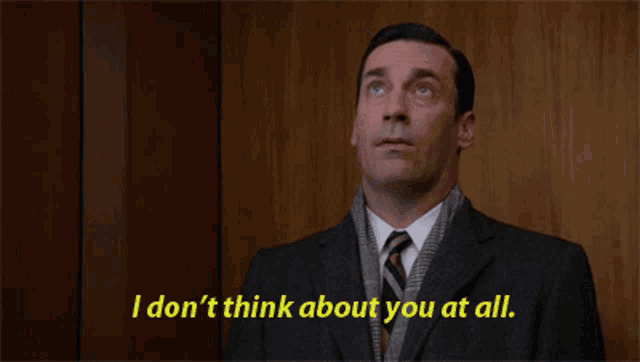Brainwashed By Black Friday
How they’ve been using psychology against you and how to reclaim your money, mind, and minimalism
Quick Reminder that the next Finance Therapy Circle is on Wednesday 20th November, 5.30pm GMT. Sign up and tell your sale obsessed friends!
I’m looking for collaborators for Finance Therapy Circle 2025 - So if you have something to add to his beautiful space where we connect Mind, Body and Money, through nervous system regulation, sharing and collective healing - drop me a message!
Black Friday is no longer just the day after Thanksgiving, when US suburban tourists historically came into the city and started their holiday shopping; it’s an institution, a frenzy, a global marketing extravaganza. From midnight queues to endless “limited-time” deals, it fuels a culture of urgency and consumption that’s hard to resist. But let’s be real: how much of what you buy during these sales truly adds value to your life?
If you’re tired of the clutter, the guilt of overspending, or the sinking feeling of buyer’s remorse, it’s time for a change. But, it’s also not (entirely) your fault. Psychologists have been working hard with corporations and governments to play on your emotions and get you to part with your hard earned cash (and votes), so that they can find themselves in the Black, whilst your bank account tumbles into the Red each festive season. So, I'm going to let you in on the slimy marketeers’ mind games and tell you how you can reclaim control over your wallet, that prime real estate full of junk you never use and your mental space - rent, mortgages and therapy aren’t cheap, after all!
The Original Influencer
People have been buying things they don’t want or need long before the rise of the Kardashians and social media. What Kim and Kylie don’t know is that Edward Bernays invented their jobs in the early 20th century. Bernays was a pioneer in public relations and the nephew of Sigmund Freud. He used Freud's ideas on psychoanalytic theory, with its emphasis on the unconscious mind, to create demand for products people didn't need. He linked mass-produced goods to people's unconscious desires, and used celebrity endorsements and PR stunts to manipulate the masses during protests and elections. PR Daddy’s most notorious campaign was linking Lucky Strike to the Women’s Emancipation movement of the 1920s - persuading women that smoking cigarettes was a symbol of independence and freedom.

If you want to be truly de-influenced from the corporate marketing game, I highly recommend watching the 2002 BBC, Century of Self documentary - you will feel equal parts enraged, stupid and liberated.
Exploiting your vulnerabilities
Sounds icky, right? Well, that's what they’re doing. Every ad that you see, every ‘don’t miss out’ pop up, every push notification reminding you to buy buy buy. There’s a team of people that sat in a room, mapped out your emotions and brainstormed ways to target and manipulate you into doing what they want.
Sign up for the mailing list for 10% off - you gave that data away quicker than a bot on Tinder. Take out the store credit card for points - obviously, not that you have ever once used the points. The buy now, pay later scheme for instant gratification - no brainer, money is future me’s problem. Don’t forget the lonely items in your basket - Oh silly me, let me finish that purchase.
Then there’s the sales events. Once a year only - the one you’ve been waiting for - sale now on. Sales events like Black Friday are masterminds of emotional manipulation. Retailers don’t just sell products, they sell urgency, exclusivity, and the illusion of smart shopping. Here are the psychological triggers at play:
Fear of Missing Out (FOMO): Limited-time offers make us think, ‘If I don’t buy now, I’ll lose this forever.’ The pressure mounts with countdown clocks and phrases like “Only 3 left in stock.”
The Dopamine Rush: Bagging a bargain lights up the brain’s reward system. It feels good in the moment, but the high is fleeting.
Perceived Value: Even when we don’t need an item, a steep discount convinces us it’s “too good to pass up.” This is why you might end up buying a fifth pair of headphones or a kitchen gadget you’ll never use.
Meanwhile you’re pumping your body full of cortisol at the thought of missing out, fogging up your mind with 1000 open tabs trying to find the ‘best deal’ and then crashing shortly after buying as the dopamine level comes down. Leaving you grappling with financial regret and emotional exhaustion.
The Influencer Effect
Influencers play a massive role in amplifying the hype. From curated gift guides to haul videos, their message is clear: “You need this, and you need it now.”
But, have you ever met an influencer? You know, the ones that try on all the clothes, tell you about the “must have” hair products and “life changing” lipstick shades. *Rolls eyes so far back it hurt* Well I have, and besides being normal humans, with mad anxiety and more money from one brand deal for a 20 second reel than most of us make a month - THEY DON’T PAY FOR OR USE THIS SH*T. They just get paid every time you buy it! It’s literally their job to sell you a lifestyle that you don’t even want. And the hard truth is, you’ve convinced yourself you do, because you prefer something about them over your reality. Their looks, their body, their hair, their home, their pets, their partner or their family.
I’m gonna have to hit you with the tough love here. A £50 throw pillow will not transform your space into an aesthetic Instagram home. No outfit, handbag or lipstick is life changing - ever. The only things you “must have” are the things that keep you alive - defo not a £500 advent calendar! 40% off something you never thought twice about, is still 60% needlessly spent.
Ask yourself:
Does this product align with my values and goals?
Would I have considered buying it if I hadn’t seen it advertised?
De-influencing starts with questioning the motives behind the message. It’s about resisting the pull of curated perfection and focusing on what truly matters to you. And sometimes, that means looking inwards and trying to understand why you’re so easy to influence in the first place. One of the most radical ways to make and save more money is to like yourself!
A Minimalist’s Black Friday
Minimalism doesn’t mean never buying anything; it means being intentional with your purchases. It’s about choosing quality over quantity, needs over wants, and experiences over clutter.
There are scenarios where Black Friday deals make sense:
Big-Ticket Items: If you’ve researched, saved up, and waited for the right moment, Black Friday can be an opportunity to snag a significant discount. Electronics, appliances, and other essentials are prime candidates. I have saved £1000’s in Black Friday sales on two purchases - a new laptop when my 12 year chunky boy was hanging on for dear life (I even extended it’s life by two years by installing Windows 10 myself). And a new phone contract because I will never pay more than £40/month for a new phone - mine is still fully functional *touches wood* at almost four years old and I pay £11/month for unlimited data in more than 72 countries.
Planned Gifting: If you already know what you want to give (or gift to yourself), Black Friday can stretch your budget further. Just ensure the “deal” is truly worth it. Remember, buying gifts worth £100’s or even £1000’s is not normal, and like you, many are trying to declutter their lives and homes. If your friends and family expect a plentiful supply of high value gifts, maybe it’s time to evaluate those relationships and set up some new boundaries that align with your personal goals. It may be cliche, but it really is the thought that counts.
In these cases, preparation is key. Write out your shopping list, know the usual prices, set a budget, and avoid being swayed by flashy extras at checkout.
Avoiding the Mad Men
Not all deals are worth your attention. If you don’t want to be sucked in, chewed up and spit out by the marketing guys, there are strategies you can put in place to interrupt the chain of events that lead you to overspending in the sales.
Here are red flags to watch for:
FOMO Purchases: If the primary reason to buy is “I might regret not getting it,” pause and reconsider. Who are you trying to impress and what feelings are you chasing? Is it just the thrill of the purchase? Or is this purchase truly going to impact your life?
Debt-Fuelled Spending: If you need to swipe a credit card or opt for buy-now-pay-later schemes, the interest payments and future strain on your finances might cost you more than you bargained for ;)
Mad Men made you buy it: Ask yourself, ‘Is this a must-have or just clever advertising?’ Reflect on how many similar items from past sales are gathering dust at home. Then think about what you would have rather used that money for instead - an investment, a holiday or a trip to see a loved one, perhaps?
Impulse Spending: Give yourself a cooling-off period. If you see something tempting, wait 24 hours before deciding. Most “must-have” items lose their appeal after the initial rush fades. Put everything on your Black Friday hitlist in your basket today - check back in two days time, do you still want it?
Do Your Homework: Many retailers inflate original prices leading up to Black Friday to make discounts appear more significant. Research prices beforehand and use price-tracking tools to confirm you’re getting a genuine deal.
Breaking free from the emotional grip of sales takes practice and intention. Self awareness and reflection can help you break these habits of a lifetime!
A better use of your money (& time)
What if, instead of spending hours looking for deals and splurging on more stuff, you redirected that time and money toward something meaningful? Here are a few ideas:
Swap your deal research time for financial literacy: Instead of “Cheap Jimmy Choos”, Search “high performing ETFs”, “ best High Yield Savings Accounts”, “highest rate ISAs”.
Invest in Financial Growth: Top up your ISA and make the most of your tax free allowances, buy into well-performing ETFs and bonds, or explore stocks with potential. The market can offer returns far greater than the discounts of a sale.
Prioritise Health and Development: Spend on therapy, your fitness, or coaches and courses that nurture your skills. Investing in yourself will pay dividends in the form of higher earning potential, better relationships and improved physical and mental wellbeing.
Support a Cause: Use your money to make a difference. Donate to organisations that help those in need during the holiday season.
Get sustainable: Use this new found enlightenment to stop feeding the fast fashion machine. Whilst you’re buying things you will never wear (or once at best) - yes, I’m looking at you, with the tag-still-on clothes in your packed wardrobe - the people making those clothes are living in polluted cities, earning well below a living wage. Say no to Shein, Zara, H&M, BooHoo, Pretty Little Thing (the list goes on) this Black Friday!
Embrace experience over things: Experiences enrich our lives, strengthen our connections, and leave us with stories to tell—not items to store. Consider giving yourself and your loved ones memories to cherish. Swap the kitchen gadget for a cooking class or the designer item for a weekend getaway.
Black Friday doesn’t have to be a day of stress, overspending, and regret. By stepping back, questioning the hype, and focusing on your values, you can transform it into an opportunity to align your spending with your goals.
As more people shift toward valuing experiences over material possessions, there’s a growing realisation that minimalist living doesn’t have to feel like sacrifice. It’s about making space, physically, emotionally, and financially for what truly matters to us. That Loui V handbag won’t be sitting around your deathbed telling stories about the time you spilt coffee on it!
This year, let’s prioritise intention over impulse. Whether you choose to buy, save, invest or give, let your decisions reflect who you are and the life you want to build.
What will you choose this Black Friday: clutter or clarity? Let me know in the comments.







